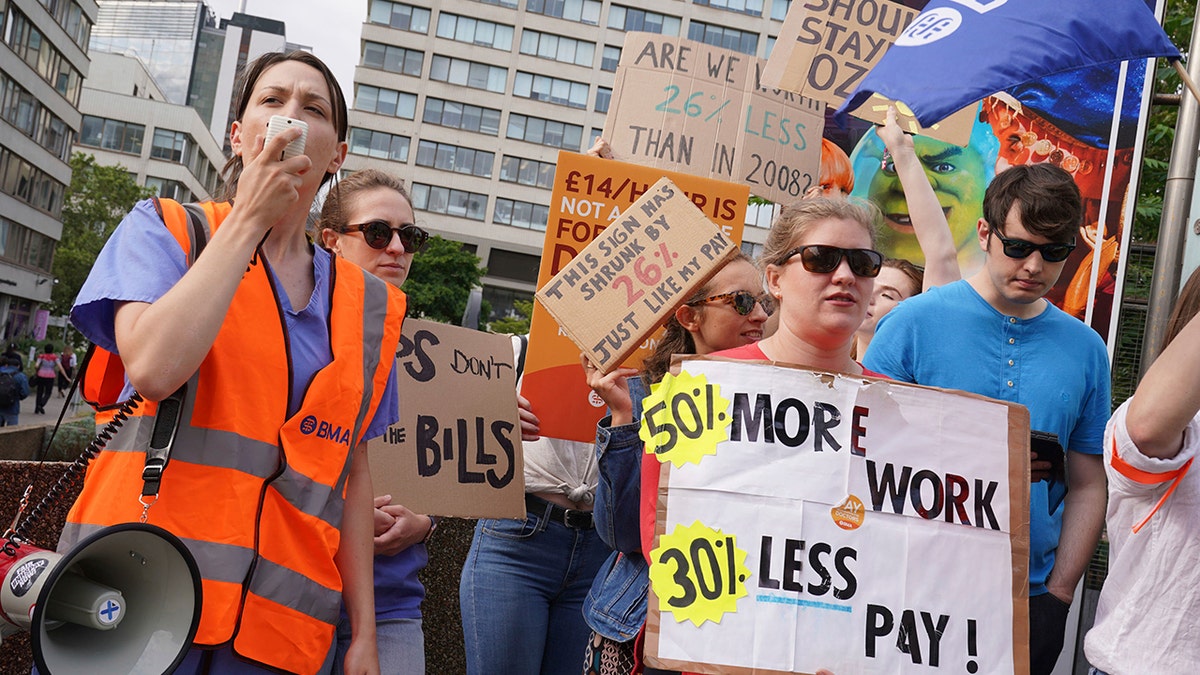In an attempt to resolve ongoing strikes that have significantly impacted essential services like healthcare and transportation, the British government has proposed pay increases for millions of public sector workers. These strikes, fueled by a substantial cost-of-living crisis, have disrupted daily life for over a year.
Prime Minister Rishi Sunak accepted recommendations from independent review bodies, announcing the pay raises on the same day that tens of thousands of doctors in the National Health Service (NHS) began a five-day walkout. However, Sunak emphasized that this offer is final and that no further negotiations with unions will occur.
The UK, similar to other European nations, has experienced widespread strikes as workers across various sectors demand wage increases to match rising consumer prices. Sunak stressed the offer's fairness to taxpayers and assured that the raises won't exacerbate inflation.
The proposed increases include a 7% raise for police officers, 6.5% for teachers, and 6% for junior doctors in the NHS. Hospital consultants, scheduled to strike the following week, will also receive a 6% raise. Some professions, including junior doctors, will receive supplementary payments.
Sunak noted that teaching unions have already indicated a willingness to suspend planned strikes and recommend the pay offer to their members. He urged other unions to accept the offer and end the disruptions.
Initial reactions suggest a positive reception, with the FDA union, representing civil servants, describing the offer as "fair and reasonable."

The pay offer is particularly relevant to the junior doctors currently engaged in what's considered the longest strike in NHS history. They are seeking a 35% pay increase to bring their salaries back to 2008 levels, adjusted for inflation. Their workload has also increased significantly due to record-high patient waiting lists following the pandemic.
The British Medical Association (BMA), the doctors' union, argues that the substantial raise is necessary to compensate for years of declining pay and worsening working conditions. The strike will undoubtedly cause further disruption to the already strained NHS, with hundreds of thousands of operations already canceled due to previous strikes.
Striking doctors acknowledge the impact of their actions on the health service but maintain that they have no other recourse. They express frustration over years of declining pay and working conditions, emphasizing their commitment to restoring the NHS.
The UK, along with other nations, is contending with high inflation driven by supply chain disruptions from the pandemic and the war in Ukraine. While inflation has decreased slightly from its peak, it remains significantly above the Bank of England's target.
Sunak stated that the pay deals will be funded through departmental spending reprioritization, not new borrowing, raising concerns about potential cuts to public services. He confirmed full funding for the teachers' pay award, with additional funds allocated to schools over the next two years. Increased visa fees and NHS contributions for non-UK citizens are expected to generate additional revenue.
Comments(0)
Top Comments